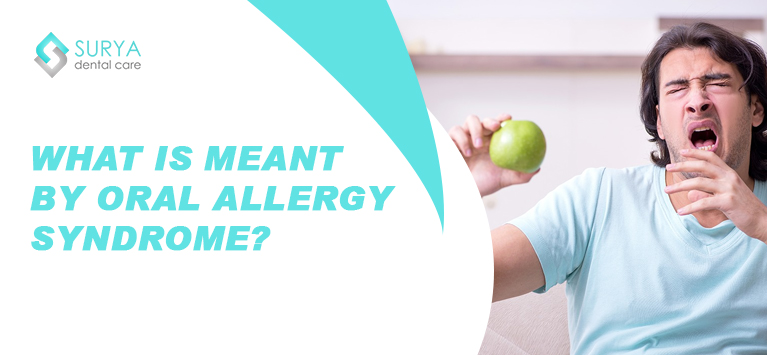
Do you sense any tingling or itching sensation in your mouth after eating particular foods? Encountering such irritations in the mouth and throat after consuming certain fruits and raw vegetables occurs due to Oral Allergy Syndrome. Such food allergies are primarily triggered by the immune system when it detects even a tiny amount of allergens in the foods.
What is meant by Oral Allergy Syndrome?
Oral Allergy Syndrome (OAS) is a kind of food allergy and it is commonly seen in people with seasonal pollen allergies. The proteins in some fruits and vegetables are similar to the pollens in particular trees. It confuses our immune system to conclude if the particular fruits have proteins or pollens.
Hence the immune system exhibits allergic responses like burning sensations in lips, throat, ear canal, stomach, etc. As many people are not aware of this condition, they thought their bodies cannot tolerate particular herbs. It is highly seen in teenagers and adults. Luckily, its discomforts are mild and not chronic.
What does it mean if the discomforts are severe?
As mentioned earlier, OAS is highly seen in people suffering from pollen allergies. It prompts some sufferers to encounter severe difficulties or adverse side effects like
- Diarrhea
- Swelling in oral tissues
- Shortness of breath
- Tightness in throat
- Wheezing
- Low blood pressure
Hence it is important to avoid certain eatables if you have seasonal pollen allergies.
What are the fruits and vegetables that trigger oral allergy syndrome?
Alder, Birch, Ragweed, Mugwort, Timothy grass, and Orchard grass pollens are responsible for OAS. Eating some raw vegetables will cross-react the pollen allergens in the sufferer’s body and would cause many discomforts.
- If you have a ragweed allergy, you should avoid banana, cucumber, watermelon, honeydew, and sunflower seeds.
- If you have birch allergy, you should stop consuming apple, celery, carrots, cherries, kiwi, peaches, and coriander.
- If you have grass allergy, it is better to avoid citric fruits like tomatoes, oranges.
- If you are allergic to mugwort, then avoid apples, broccoli, cabbage, carrots, coriander, celery, peanuts, bell pepper, and black pepper to avoid OAS.
How can you diagnose Oral Allergy Syndrome?
Apart from irritations in oral tissues, OAS and other seasonal allergies can be confirmed with skin tests. During diagnosis, allergists look whether a sufferer has cross-reaction to particular foods. If they found, they would recommend the foods to avoid for your well-being.
Will avoiding such foods prevent Oral Allergy Syndrome?
Cutting down the particular foods prevents the cross-reaction thereby the oral difficulties can be prevented to a great extent. In most cases, taking these foods after being cooked or pressurized does not cause any discomfort.
It is because the allergens will go down smoothly when you cook a vegetable. Likely, peeling off a fruit’s skin is also helpful in expelling the allergens.
In contrast, it is not helpful in all cases. In such circumstances, you should give your favorite fruits or vegetables and even dishes prepared with them to avert the allergic reaction exhibited as a tingling or burning sensation in your mouth.



